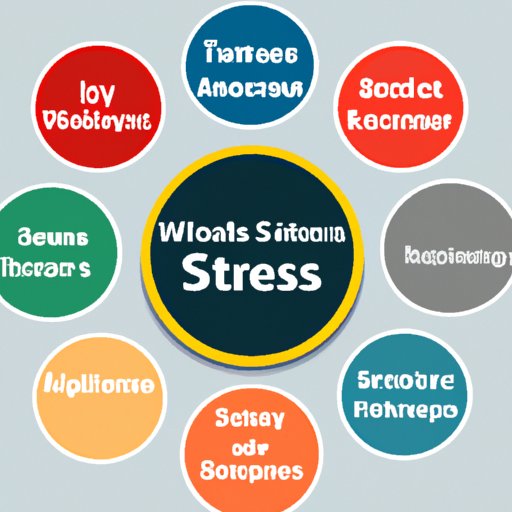
Introduction
Stress can have a significant impact on our health, relationships, and productivity. Yet, many people struggle with identifying and measuring their stress levels. This article will explore the different ways to measure stress, both physical and psychological, and will provide tips and strategies for managing stress levels more effectively.
Understanding the physiological indicators of stress
Stress can lead to physical symptoms like increased heart rate, high blood pressure, and changes in cortisol levels. These indicators are crucial for identifying and measuring stress. In order to better understand how stress affects the body, it’s important to understand how they can be measured.
Wearable monitoring devices like smartwatches can track heart rate variability and sleep patterns, giving users a better sense of how stress is impacting their body. Similarly, regular check-ups with a healthcare provider can give insight into blood pressure and cortisol levels, as well as other health indicators impacted by stress.
Assessing psychological symptoms of stress
Stress can take a toll on our emotional and mental wellbeing, leading to symptoms like anxiety, depression, and burnout. It’s important to recognize these symptoms in ourselves and others in order to address stress effectively.
Mindfulness practices can help individuals better tune into their thoughts and feelings, making it easier to recognize areas of anxiety and stress. Counseling or therapy can also be a useful tool for refining stress management strategies and improving overall wellbeing.
Self-assessment tools for measuring stress
In addition to physical monitoring and recognizing psychological symptoms of stress, there are several self-assessment tools available to help individuals measure their stress levels. These include validated questionnaires which ask questions about different symptoms and use scoring systems to indicate stress levels.
While these tools can be helpful, it’s important to be mindful of their limitations and to consider professional help in case of persistent symptoms. Individuals should also be aware of any biases that may impact the way they respond to questions, and interpreting the results should be done in consultation with a healthcare provider or professional.
Daily habits and stress reduction techniques
Managing stress levels can also be done by adopting daily habits and stress-reduction techniques. Physical activity in the form of exercise has been shown to help reduce stress levels, as has mindfulness meditation. Quality sleep is also important for managing stress levels.
Nutrition and hydration can also impact stress. Incorporating healthy foods and limiting caffeine and alcohol consumption can help to reduce stress levels. Stress reduction techniques like deep breathing exercises or taking moments of mindfulness throughout the day can also reduce feelings of stress and anxiety.
The importance of measuring stress
Measuring stress levels can provide insight into areas where individuals may need to focus their stress management efforts. Regular monitoring and identifying patterns can also help individuals develop customized stress management strategies that work for them. Tracking stress can also help individuals recognize areas where stress is impacting their overall health and wellbeing.
Stress management can lead to improved sleep quality, productivity, and relationships. Regular measurement can help individuals track their progress towards these goals and make adjustments as needed.
Conclusion
Measuring and managing stress is crucial for promoting overall health and wellbeing. By understanding the physiological and psychological indicators of stress, using self-assessment tools, and adopting daily habits and stress reduction techniques, individuals can make significant strides towards managing their stress levels effectively. Remember to regularly measure and be mindful of your stress levels to make positive changes in your daily life.




